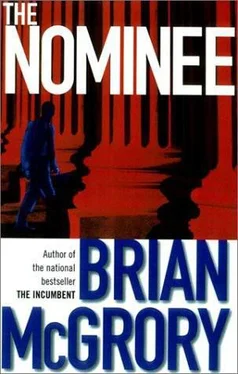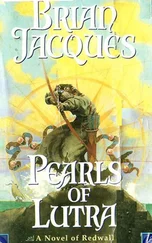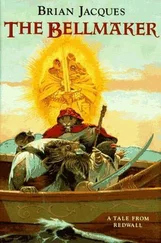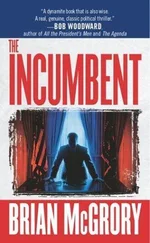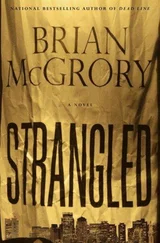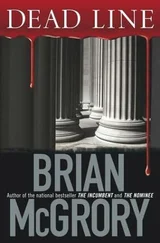My computer sprang to life and I logged into theRecord ’s library database. I plugged in John Cutter’s name and got several dozen hits. I scrolled though the headlines until I came to one that said, “John Cutter, LongtimeRecord Publisher, Dead of Apparent Heart Attack.” It ran on the front page five years ago this month.
The reporter detailed Cutter’s many accomplishments, quoted various civic dignitaries about his significant contribution to the city, and provided a relatively sketchy account of his housekeeper’s discovery of the body in the morning at his Four Seasons condominium overlooking the Public Garden. A Boston Police detective, a guy by the name of Hank Sweeney, was quoted on some of the particulars. There wasn’t so much as a scant hint of foul play.
I pulled up another, shorter story from the next day’s paper, this one headlined, “Cutter Autopsy Confirms Heart Attack.” It said the determination was made by the assistant state medical examiner, Justin Cobain, who was quoted saying, “It appears to be death by natural causes.”
It appears.If you’re him, why couch it. Or perhaps I was simply nit-picking through the prism of time and with the prejudice of suspicion. Still, that’s just what we do sometimes in the august Fourth Estate.
I plugged Cobain’s name into my computer, into the library database of everyRecord for the past twenty years. The first story that popped up on my screen was his obituary from two years ago, “Justin Cobain, Veteran Coroner, at 69.” So much for the old saw, “Better late than never.”
When I typed Sweeney’s name into the system, it spit out twenty-five stories over the last decade-and-a-half, but the most recent of them appeared nearly three years ago. I retyped his name with the keyword “Obituary,” but came back with nothing, which was good news. So I called police headquarters and asked for Hank Sweeney. I heard the woman on the other end of the line type something into a computer, then riffle through what sounded like the thin pages of a directory book. Finally, she said to me, “I don’t see anyone here by that name.”
“How would I find out if he’s retired?” I asked.
“Do you know where he used to work?”
“He was a lieutenant in homicide.”
“You can try the homicide bureau. Someone up there might know.” Before I could even thank her, she transferred the call.
A gruff-sounding receptionist said, “Hank Sweeney? Yeah, he’s in Florida. I think it’s some town outside of West Palm.”
This, ladies and gentlemen, is what sometimes passes for investigative reporting, which is exponentially better than reporting about presidential stains on dresses. I thanked her and hung up.
Cops rarely — alright, never — list their telephone numbers, for all the obvious reasons. I wondered if retired cops were as private. So I was more than pleasantly surprised when I plugged his name into a phone database and retrieved one Henry Sweeney from Marshton, Florida, a town with the same area code as Palm Beach.
And here, my first key decision of the day. I decided I needed to see him, to look into his eyes as I asked him about John Cutter’s death. As a reporter, whenever you visit someone, as opposed to calling them, you make it harder for them to evade you. You’re standing right there in front of them, a live human being in need of information or a favor rather than just a distant voice on the phone. The actual brush-off requires more nerve and effort compared to simply hanging up the line. They have to ask you to leave their property or shut the door in your face — something that most people of even modest manners are not inclined to do, because such an act involves at least low level conflict. Humans are a breed that generally likes to please.
Decision number two: Though I was sitting with his phone number, I decided not to warn him of my arrival. Surprise, when used well, is an effective reportorial tool. If he knows I’m coming, he can think of a million reasons not to help me, then prepare and rehearse his evasive reply. If I just show up, there’s a reasonable likelihood of catching him off guard, such that he may blurt out something useful or simply provide me with what I need because he hasn’t had a chance to think of a reason he shouldn’t. Sounds simple, but you wouldn’t believe how many reporters don’t get it.
As my newspaper teetered on the precipice of a catastrophic sale, tomorrow I would be in Florida, knocking on the door of one Hank Sweeney, five years late, but God willing, not too late. Even if this was the wildest of goose chases, I would do this for Paul because, truth be known, I would do virtually anything for Paul.
The sun was setting and the harbor waters were making their nightly transition from blue to black as I grabbed my well-worn Spaulding basketball, headed up the rickety wooden docks and trotted across the gravel parking lot, Baker joyfully in tow.
I was wearing a pair of warm-up pants and an old sweatshirt on what had become our nightly routine — a walk along the waterfront to the North End, the city’s famous Italian enclave. There, we cut across Hanover Street, lined with bakeries, coffee shops and trattorias, and arrived in the yard of St. Mary’s, a tiny parochial school with an outdoor basketball court lit by two faint floodlights.
As I walked up to the foul line, Baker settled at half-court and directed his attention to a rawhide bone. My first shot clanked off the rim. Second shot: Swish. Third shot: Swish again. Not since high school in South Boston had I played competitively, and not since a year ago had I even picked up a ball. But a funny thing tends to happen on the way toward middle age: you reach out more, and you reach back, and here I was, night after night, not so much trying to reclaim a bit of my youth, but just trying to fend off the loneliness of mortality with the familiar comfort of ability. And in my day, pardon the braggadocio, I was more able with a basketball than most.
I moved over to the corner of the foul line and began pumping jumpshots, grabbing the rebound, dribbling out to the opposite corner and shooting again. It was an act of blessed simplicity, yet one with an almost endless possibility of either error or accomplishment. You set, bend your knees, jump, flick your wrist such that your shooting hand is parallel to the ground at follow-through, then you watch the ball float through the cool, dim evening air, either to rattle off the unforgiving rim or nestle into the inviting net. Fortunately the latter was more my destiny than the former, on the court and, if you don’t mind, in life.
Five, ten minutes later, my blood was pumping. Another ten minutes and I felt a nice warm sweat coating my cool forehead, then my lower back. The shots, for whatever it’s worth, were falling like snow on the Rocky Mountains.
Flynn fakes right, dribbles left, stops and shoots. Bang! Fans, he’s hit yet another J and the kid is on a capital-T tear.
Dribbling back to the top of the key, my mind invariably, inevitably wandered to my story on Governor Lance Randolph. What I had was compelling evidence that he had inflated his conviction rate from when he was the Suffolk County district attorney — an embellishment that helped him win his first gubernatorial campaign six years ago. He was, his campaign literature repeatedly proclaimed, the most successful prosecutor in Massachusetts, a no-nonsense, tough-on-crime, new-age Democrat uniquely able to lead the state through any stretch of unexpected tumult. Now I wasn’t so sure.
Of course, when I began reporting the story, I had no idea that Randolph would be nominated as the attorney general, which elevated it to national importance. We love collecting hides in this business, and I already have some impressive ones on the wall, but it would certainly be nice to add that of a presidential appointment.
Читать дальше
